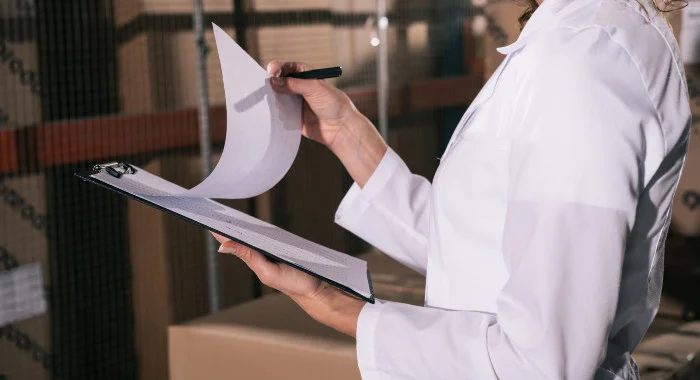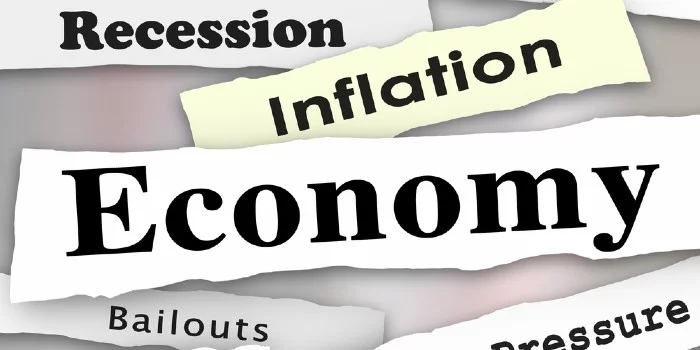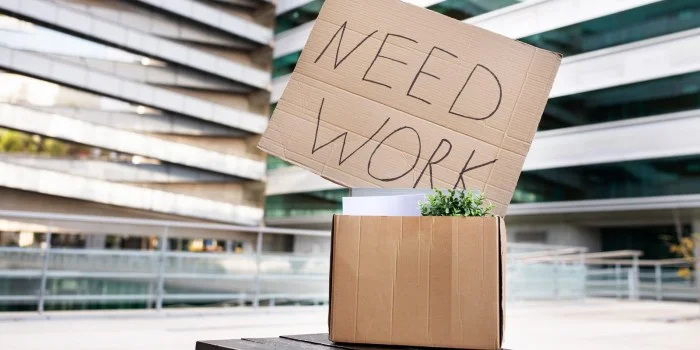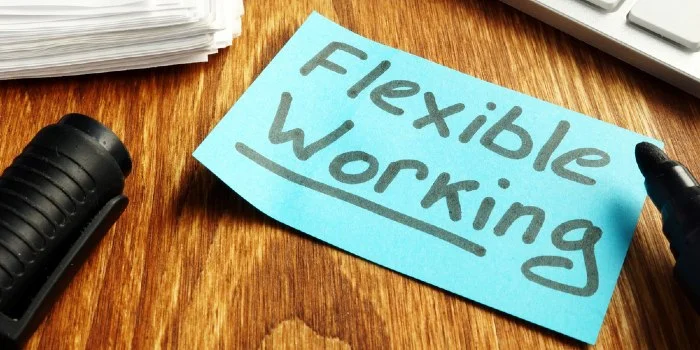More and more businesses are putting sustainability at the heart of their business, products and services. But saying that you care about sustainability and proving it are two separate matters.
For those who want to showcase their green credentials and positive impact on the planet, the top sustainability certifications are a great way to prove the sustainable efforts of your company in a trusted and regulated way.
However, in the UK, no set standard for sustainability credentials exists. There are many different ones that you could get and apply for – all of which we’ll delve into below.
What is a sustainability certification?
Before we get into the possible certifications that you can get, let’s just quickly cover what sustainability certification is and what it will grant your business.
Sustainability certification is issued by an independent second or third party as ‘proof’ that your business meets their sustainability standards. It’s like a friendly thumbs-up given by experts to a product, service, or company that shows they’re doing things in a sustainable and ethical way.
It’s not a legal must-do; it’s more of a “Hey, we’re committed to being eco-friendly and responsible” badge that companies can choose to earn.
There are different types of sustainability certifications depending on which body you choose to go with. Some might include levels, which are like grades that show how sustainable your company is.
Overall, sustainability certification is a great way to prove that you are honest about your environmental claims and aren’t trying to ‘greenwash’ customers into thinking you are more sustainable than you are.
In addition, getting certified can boost a company’s reputation, attract investors who care about the environment, and even give them a leg up in the competition.
The top sustainability certifications for UK businesses
Let’s stop the explanations and go into some of the top sustainability certifications that you can get for your business in the UK.
1. B Corp certification
- Certification name: B Corp Certification
- Certification body: B Lab
The B Corp certification is awarded by the non-profit network B Lab Global UK. This certification is based on a B Impact Assessment.
You can be awarded by one of the top sustainability certifications if your business demonstrates sustainable and socially responsible practices that positively impact the environment and society.
The assessment will cover aspects such as where the business gets its materials, how it manages the supply chain, its trade practices, and the people working for it before making any decisions.
B Labs will also keep a close eye on these things through both internal and external evaluations.
They conduct regular compliance audits to make sure everything is in check after the first assessment is over.
If companies can score 80 or higher on this assessment (out of 200) and make a legal commitment to change their corporate governance structure to commit to be accountable to all stakeholders, including customers and employees, then they will be B Corp Certified.
This year, 1,500 UK-based companies have been awarded B Corp certification, proving it to be a popular certification method. As well as proving green credentials, research from B Labs shows that companies in the B Corp community have a success rate of 70%, compared with non-certified companies whose rate is 56%.
2. ISSP Sustainability Excellence Associate
- Certification name: Sustainability Excellence Associate (SEA)
- Certification body: International Society of Sustainability Professionals (ISSP)
The International Society of Sustainability Professionals (ISSP) is a global sustainability association that offers two courses and top sustainability certifications to businesses. The first is the Sustainability Excellence Associate (SEA) course.
The SEA course is tailored for individuals entering the field of sustainability, making it a good match for sole traders.
Serving as a prerequisite for the SEP certification, SEA equips people with a comprehensive understanding of current sustainability issues, the capacity to assess sustainability risks and opportunities, and the ability to apply systems thinking in crafting sustainable solutions.
The SEA credential signifies a company’s commitment to grasping sustainability concepts and adhering to best practices.

3. ISSP Sustainability Excellence Professional
- Certification name: Sustainability Excellence Professional (SEP)
- Certification body: International Society of Sustainability Professionals (ISSP)
The Sustainability Excellence Professional (SEP) is the second course available by ISSP, which can only be taken after a business has already achieved the SEA course.
As an advanced version of the SEA certification, the SEP certification proves extensive knowledge and experience in the sustainability field.
A SEP certification will also showcase your company as a professional at the forefront of sustainable change, adept in core sustainability concepts, stakeholder engagement, and implementing sustainable strategies.
Exams for both SEA and SEP can be undertaken remotely or at designated testing centres, making it a flexible option no matter where your business is based.
4. ISO 14001
- Certification name: ISO 14001
- Certification body: International Standards Organisation
Although ISO 14001 might look like a barcode, it’s actually one of the oldest and most respected top sustainability certifications businesses can achieve in the UK.
It’s awarded by the International Standards Association, and due to its prestige, it can take a lot of resources to implement the EMS (Environmental Management System) needed to pass the certification.
Because of that reason, ISO 14001 is normally undertaken by medium/large businesses rather than SMEs and startups.
However, there are no restrictions for startups and small businesses to apply for the ISO 14001, so if you have the resources available, this could be a great certification to aim for.
5. Carbon Trust Certified
- Certification name: Carbon Trust Certified
- Certification organisation: Carbon Trust
Carbon Trust is a big deal in the sustainability world. They have a solid reputation for teaming up with medium and large organisations, especially the big ones with complicated supply chains.
Being certified by the same body as these giants can boost your business.
Carbon Trust offers different levels of accreditation. The first is labelling individual products that hit sustainability requirements, as well as having its own international standard, PAS 2060.
In addition, Carbon Trust is also one of the only companies in the world giving accreditation to events. Whatever industry or products that your business sells, there’s a Carbon Trust sustainably certification that matches.
6. Green Mark
- Certification name: Green Mark sustainability certification
- Certification organisation: Green Mark
The Green Mark sustainability certification is a great option for businesses of all sizes but is known for working with many players in the tactile industry.
Their certification process, guided by an environmental management system, acts as your GPS on the road to sustainability greatness.
They’re not just handing you a roadmap. They’re rolling up their sleeves and working directly with you to make sure you hit sustainability requirements not just for your sustainability certificate but for the future.
Lost the buzz for your business?
Starting a business is exciting. Succeeding is rewarding. The bit between is hard, repetitive, and full of self-doubt.
The Lonely Middle Club (From Business4Beginners) helps you through it:
Get support and advice from other small business owners
Remove the self-doubt that’s holding your business back
Learn techniques and strategies to grow your business faster
Be inspired with our exclusive ‘swipe’ file and AI-powered tools
No pressure – work at YOUR pace, towards YOUR goals
—
7. Planet Mark
- Certification: Planet Mark
- Certification organisation: Planet Mark
The Planet Mark accreditation process has it out in three options: starter, pro, and enterprise. The starter track is specifically designed for small businesses and startups with your needs in mind.
During your certification process, you’ll get hands-on help from Planet Mark in creating a sustainable approach and strategy that works for you and your business.
Although they work with industries of all sizes, they have a proven track record within the real estate sector.
8. Cradle to Cradle
- Certification: Cradle to Cradle Product Standard
- Certification organisation: Cradle to Cradle
The Cradle to Cradle certification is a global gold standard for creating products that are safe, circular, and responsibly made.
To get one of the top sustainability certifications like this, the body looks deeply into whether a product is a circular economy champ, rocking process designs and regenerative features.
It’s all about clean air, renewable energy, human rights, and water sources.
Products will be heavily scrutinised by an independent assessment body. If passed, they will be awarded a bronze, silver, gold, or platinum crown in four different categories.

9. Global Reporting Initiative Professional Certification
- Certification: The Global Reporting Initiative Professional Certification (GRI)
- Certification organisation: Global Reporting
The Global Reporting Initiative Professional Certification (GRI) is a learning platform for sustainability professionals.
It involves four courses, which delve into GRI standards, reporting, human rights, and integrating SDGs into sustainability reporting.
10. Sustainability and Climate Risk Certificate
- Certification: Sustainability and Climate Risk Certificate (SCR)
- Certification organisation: Global Association of Risk Professionals (GARP)
The GARP certification program challenges candidates to wield a diverse set of skills and knowledge as professional sustainability and climate risk specialists.
The SCR certification is a trademarked and globally recognized accolade that comes after a thorough assessment process.
The certification will cover modules such as sustainability, climate risk measurement and management, foundations of climate change, climate scenario analysis, green and sustainable finance (instruments and markets), and climate change risk policy, culture, and governance.
11. Rainforest Alliance Sustainable Agriculture Standard
- Certification: Rainforest Alliance Sustainable Agriculture Standard
- Certification organisation: The Rainforest Alliance
The Rainforest Alliance collaborates with farmers, foresters, and businesses to champion sustainable practices across global supply chains.
Their mission is twofold: safeguarding forests and advocating for sustainable farming through environmental best practices.
To gain one of the top sustainability certifications, businesses must be assessed based on The Rainforest Alliance’s Sustainable Agriculture Standard. They look at aspects like environmental responsibility, social well-being, and economic sustainability.
12. Living Future Accreditation
- Certification: The Living Future Accreditation (LFA)
- Certification organisation: International Living Future Institute
For the design industry, the Living Future Accreditation (LFA) recognizes expertise in advanced and holistic sustainable design standards.
This certification allows practitioners to showcase their deep understanding of advanced sustainability concepts and reinforces a commitment to regenerative and sustainable design.
13. Environmental Working Group Verified certification
- Certification: Environmental Working Group Verified certification
- Certification organisation: Environmental Working Group (EWG)
The Environmental Working Group Verified certification is rewarded for products that align with the organisation’s rigorous health standards. Regulating items such as cleaning products, cosmetics, and baby care products, the EWG meticulously evaluates the safety of all ingredients.
To get a sustainability certification from EWG, just complete an online application.
EWG will then analyse your products, giving each one a safety rating and certification.

14. Leaping Bunny Certified Cruelty-Free
- Certification: Leaping Bunny Certified Cruelty-Free certification
- Certification organisation: Coalition for Consumer Information on Cosmetics (CCIC)
The Leaping Bunny Certified Cruelty-Free certification is awarded to cruelty-free products with no ingredients tested on animals.
They examine the whole supply chain of the company, including materials sources and external suppliers, and craft an ongoing monitoring plan.
Certification fees are determined by the company, taking into account its size and annual income.
15: 1% For The Planet
- Certification name: 1% For The Planet
- Certification organisation: 1% For The Planet
1% For The Planet doesn’t operate like the other sustainability accreditations.
Instead, this company is all about picking environmental causes for which you contribute at least 1% of your revenue (hence the name!) into that cause.
Once you contribute, you’ll get a certification logo, which you can use to show that you’re doing your part by contributing to great causes.
Contributing will also get your business access to that community and network, which could be a great way to grow and partner with other businesses doing good.
How much do sustainability certifications cost in the UK?
The cost of the top sustainability certifications in the UK depends on the type of certification that you apply for. To help get an idea of some of the upfront costs, we’ve put all of the 15 above certifications into this quick reference table.
| Certification | Awarding Body | Annual Costs |
| B Corp Certification | B Labs | From £700 to £35,000 depending on turnover |
| Sustainability Excellence Associate (SEA) | International Society of Sustainability Professionals (ISSP) | For non-members, study materials are $40-215, plus an examination fee |
| Sustainability Excellence Professional (SEP) | International Society of Sustainability Professionals (ISSP) | Costs vary depending on the size of the organisation and will need to be renewed every three years |
| ISO 14001 | International Standards Organisation | Costs vary depending on the size of the organisation and will need to be renewed every three years |
| Carbon Trust Certified | Carbon Trust | Varies, depending on the certification |
| Green Mark sustainability certification | Green Mark | Prices start at £275 annually for companies with 1-5 employees, ranging to £1,550 annually for those with 101-250 employees |
| Planet Mark | Planet Mark | From £1500 to £6000 |
| Cradle to Cradle Product Standard | Cradle to Cradle | Fees depend on annual revenue, ranging from €1,500 – €12,500 per year |
| The Global Reporting Initiative Professional Certification (GRI) | Global Reporting | For SMEs, total pricing can be up to €8.625 for the first year (including application fees, material certification and trainer certifications). The second year will be approximately €2,900. |
| Sustainability and Climate Risk Certificate (SCR) | Global Association of Risk Professionals (GARP) | Costs vary by company and comprise volume-based royalty, sustainability investment, a sustainability differential and supply chain audit fees |
| Rainforest Alliance Sustainable Agriculture Standard | The Rainforest Alliance | Costs vary depending on the size of the organisation. It also needs to be renewed every three years |
| The Living Future Accreditation (LFA) | International Living Future Institute | Foundational course from $750 USD |
| Environmental Working Group Verified certification | Environmental Working Group (EWG) | There is no cost for certification, but a one-time fee to license the logo applies. The fee is based on your company’s gross annual sales, ranging from $500 to $4,500 |
| Leaping Bunny Certified Cruelty-Free certification | Coalition for Consumer Information on Cosmetics (CCIC) | £655 per candidate, including all learning materials, access to the examinations and student membership of both bodies |
| 1% For The Planet | 1% For The Planet | 1% of your revenue |
Does the UK government support sustainability certifications?
The UK government supports sustainability certifications through new initiatives like the UK Business Climate Hub.
Launched to assist small businesses in reducing their carbon emissions and cutting energy costs, this hub reflects the government’s commitment to achieving net-zero carbon emissions by 2050, as mandated by law since 2019.
Recognising that small and medium-sized enterprises (SMEs) play a crucial role in reaching net-zero targets, the government addresses the lack of awareness among these businesses.
The UK Business Climate Hub provides a one-stop shop for practical advice, offering a free carbon calculator and tools to measure, track, and report carbon emissions.
This initiative aims to empower SMEs by offering guidance on various sustainability aspects, from finding green suppliers to installing EV charging points and solar panels.
In addition, the hub offers information on obtaining business grants, green loans, financing for energy-saving technology retrofits, and credible carbon offsets. You can find out more about the Business Climate Hub here.
For any other news and ideas, make sure you stay up to date with Business4Beginners.







